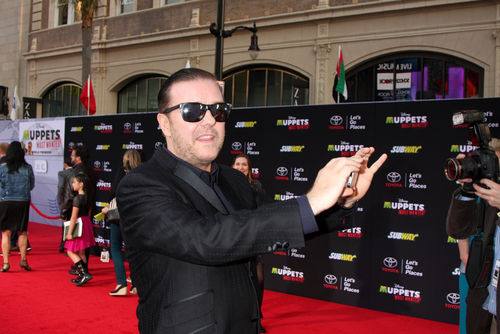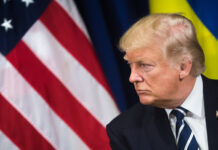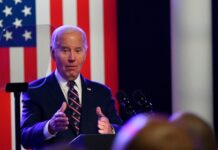
In the ever-evolving landscape of comedy, Ricky Gervais has once again found himself at the center of a heated debate. The comedian’s latest stand-up special has sparked outrage for its unapologetic humor, which includes jokes about terminally ill children. Despite the backlash, Gervais has defended his comedic approach, emphasizing the importance of free speech and artistic expression.
Gervais, known for his no-holds-barred style, has long confronted societal dogmas that he believes oppress people and limit freedom of expression. His recent defense is not just about preserving his own material but also about upholding the principle that comedy should be a space where difficult topics can be tackled without fear of censorship.
Netflix aren't doing any posters because they can't be arsed and I'm not doing any press interviews because they're all cunts. All I've got is you lot. Please watch #Armageddon on Netflix. Merry Christmas. pic.twitter.com/pLpzymyqDD
— Ricky Gervais (@rickygervais) December 18, 2023
The controversy erupted when a segment from his show was criticized for being ableist and insensitive towards individuals with disabilities. Gervais responded to these claims by stating that his jokes were taken out of context and that his use of certain words in a comedic setting does not reflect his personal language or beliefs.
Critics, including disability charity Scope, have argued that such language, regardless of intent, has real-world consequences. They claim that it emboldens others to use derogatory terms and contributes to the abuse of disabled individuals. However, Gervais counters that his routine exists within the realm of satire and should be distinguished from his personal conduct.
Un teaser pentru urmatorul special al lui @rickygervais.
Ricky Gervais: Armageddon va fi disponibil din 25 decembrie, pe @netflix #RickyGervais #Netflix pic.twitter.com/BPCBWkCymD
— Cultură Populară 🎬 (@CulturaPopulara) December 19, 2023
The debate has extended beyond the comedian himself, with some viewers and parents of terminally ill children expressing their discomfort with the content. A petition was even launched, garnering thousands of signatures, calling for the removal of the contentious skit from Netflix’s platform.
Yet, Gervais remains steadfast, challenging his detractors with a ‘good luck’ in their efforts to have his material removed. He argues that the essence of comedy lies in its ability to provoke thought and challenge taboos, suggesting that the true offense would be to silence comedians through a culture of outrage and forced politeness.
The conversation around Gervais’s special is indicative of a broader cultural clash over the boundaries of humor and the role of comedians in society. While some advocate for sensitivity and restraint, others champion the unfettered right to laughter, even at the expense of comfort.
As the dust settles on this latest skirmish in the war of words, one thing remains clear: Ricky Gervais will not be deterred from pushing the envelope. Whether one finds his brand of humor distasteful or daring, it serves as a reminder that comedy, at its core, is a reflection of the complexities and contradictions of the human experience.
In conclusion, the discourse surrounding Ricky Gervais’s controversial joke underscores a pivotal moment for comedy. It raises questions about the limits of satire, the responsibilities of public figures, and the sanctity of creative freedom. As society grapples with these issues, the debate is sure to continue, with Gervais remaining a polarizing figure at the heart of the conversation.










